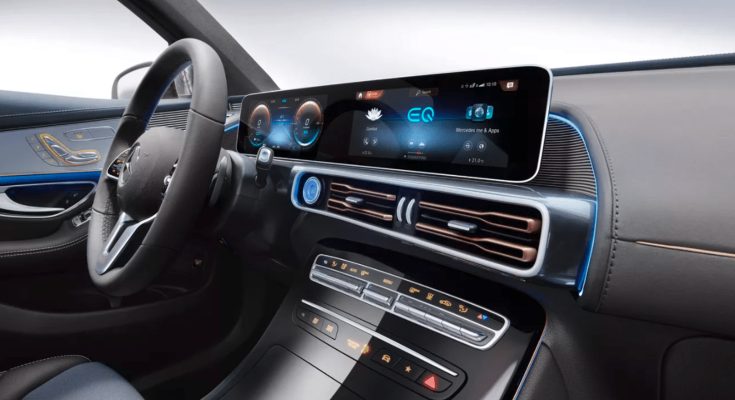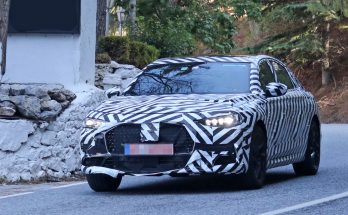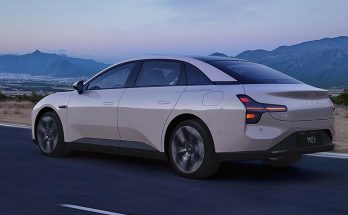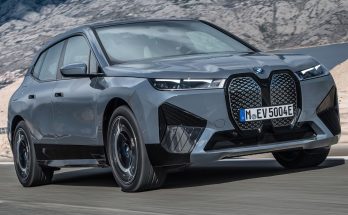Introduction to the Mercedes-Benz EQC model
The Mercedes-Benz EQC model has garnered attention as a key player in the luxury electric vehicle market. With its sleek design, impressive performance, and eco-friendly credentials, it seemed poised to make a significant impact. But recently, news broke that production of the EQC has come to an unexpected halt. This development raises questions not just about this particular model but also about the future direction of electric vehicles from one of the world’s most prestigious automotive brands.
What led to this decision? How does it affect current customers and potential buyers? And what alternatives are available for those who had their eyes set on the EQC? Join us as we delve into these pressing questions and explore what lies ahead for Mercedes-Benz in an increasingly electrified landscape.
Why was production stopped?
Production of the Mercedes-Benz EQC has come to an unexpected halt. This decision stems from a combination of factors affecting the electric vehicle landscape.
First, supply chain issues have emerged as a significant challenge. Key components needed for production are in short supply, leading to delays and inefficiencies.
Additionally, market demand for electric vehicles is shifting rapidly. Competitors are launching new models at a fast pace. This has forced Mercedes-Benz to reevaluate its strategy regarding the EQC.
Moreover, internal company strategies play a role here too. The brand aims to focus on newer technologies and platforms that promise better performance and efficiency.
These combined pressures made it clear that continuing with current production would not be viable in the long term.
Impact on customers and potential buyers
The halt in production of the Mercedes-Benz EQC has left many current owners and potential buyers in a state of uncertainty. For those who invested in this electric SUV, concerns about long-term support and service availability are paramount. Owners may wonder how this decision will impact warranty coverage or parts supply.
Potential buyers now face the dilemma of whether to wait for a possible revival of the EQC or explore other options. The sudden discontinuation can create hesitation among consumers eager to transition to electric vehicles.
With fewer new units available, resale values might fluctuate significantly. This situation could discourage some from making an immediate commitment to the brand’s electric offerings.
In addition, loyalists who admired Mercedes-Benz’s push into electrification may feel let down, prompting them to consider rival brands that continue their electric initiatives without interruption.
Alternatives to the EQC model
For those seeking alternatives to the Mercedes-Benz EQC, several impressive electric vehicles are making waves in the market. The Audi e-tron stands out with its luxurious interior and cutting-edge technology. It offers a smooth ride and a robust range that appeals to many drivers.
Another noteworthy option is the Tesla Model Y. Known for its performance and advanced autopilot features, it has quickly become a favorite among EV enthusiasts. With an expansive Supercharger network, long road trips feel more achievable.
The Ford Mustang Mach-E also deserves attention. Its sporty design coupled with competitive pricing makes it an attractive choice for buyers looking for both style and substance.
Consider the Volkswagen ID.4, which boasts practicality without sacrificing on tech or comfort. Each of these models brings unique strengths to the table, providing plenty of choices for potential electric vehicle owners.
Future plans for Mercedes-Benz in the electric car market
Mercedes-Benz is gearing up for an ambitious future in the electric vehicle sector. The brand plans to expand its EQ lineup significantly in the coming years. This expansion aims to cater to a broader audience, showcasing innovative designs and cutting-edge technology.
The company has committed substantial investments toward research and development of electric vehicles. A focus on improving battery efficiency and charging infrastructure will be key components of this strategy.
Additionally, Mercedes-Benz intends to introduce new models that promise enhanced performance while maintaining luxury standards. The shift towards sustainability is not just about vehicles; they are also exploring eco-friendly manufacturing processes.
Collaboration with tech companies may play a role too, ensuring that their vehicles remain at the forefront of advancements in autonomous driving and connectivity features. All these efforts signal a strong commitment from Mercedes-Benz to lead in the evolving landscape of electric mobility.
The controversy surrounding the halt in production
The decision to halt production of the Mercedes-Benz EQC has sparked significant debate among automotive enthusiasts and industry experts alike. Many are questioning the company’s strategic direction in an increasingly competitive electric vehicle market.
Critics argue that discontinuing a flagship model like the EQC may signal uncertainty about Mercedes-Benz’s commitment to electrification. This move raises eyebrows, especially when rival brands keep launching new electric models with great success.
Moreover, some loyal customers feel abandoned. They had invested emotionally and financially in what they believed was a forward-thinking vehicle designed for sustainable driving.
On social media platforms, discussions have escalated into heated exchanges between fans and skeptics of the brand. The lack of clarity from Mercedes-Benz only adds fuel to this fire.
This controversy illustrates how swiftly public perception can shift in today’s fast-paced automotive landscape as consumers demand transparency and consistent innovation from their favorite brands.
Conclusion: What does this mean for the future of electric cars?
The halt in production of the Mercedes-Benz EQC raises significant questions about the future of electric vehicles. This decision reflects a broader industry trend as automakers reassess their strategies in an evolving market. With increasing competition from other brands and shifting consumer preferences, manufacturers must adapt or risk falling behind.
For customers, this situation creates uncertainty around current ownership and resale value. Potential buyers may feel hesitant to invest in a model that has been discontinued, leading them to explore alternatives within the expanding EV landscape.
Mercedes-Benz’s pivot could also signal a new direction for its electric lineup. The brand may focus on developing more advanced models or innovative technologies that align with market demand. As they navigate these changes, consumers will be watching closely to see how Mercedes balances luxury with sustainability.
This moment serves as a reminder that the automotive world is dynamic and ever-changing. Automakers are not just competing against each other; they are vying for consumer trust and loyalty amidst rapid advancements in technology and shifting environmental expectations.
As we look forward, it’s clear that while the EQC may no longer roll off assembly lines, it contributes to an essential conversation about what drives progress in sustainable transportation. The pause on one model can lead to greater innovations down the line—shaping both consumer choices and industry standards moving ahead.



